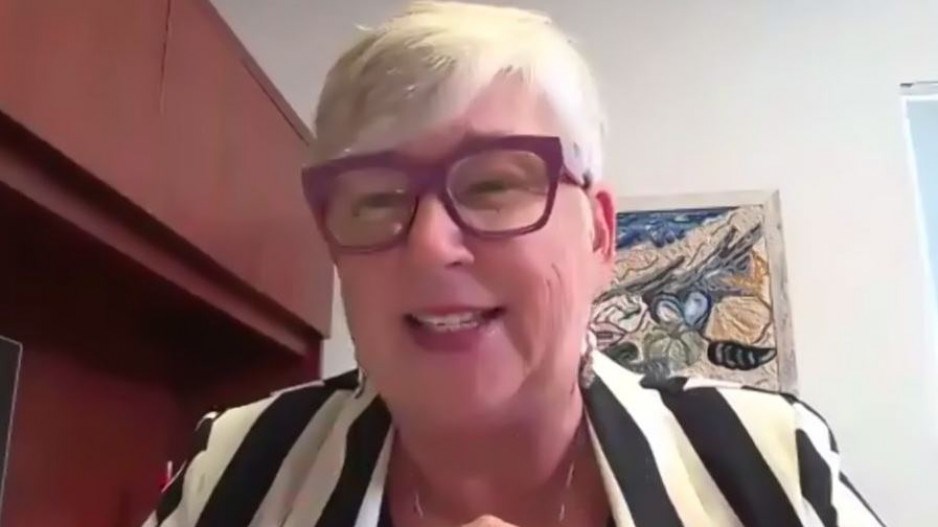The federal government has finalized what it is calling an historic agreement with eight coastal First Nations in B.C. on the development of an indigenous commercial fishery.
The new Coastal First Nations Fisheries Resource Reconciliation Agreement establishes an indigenous commercial fishery with licences and quotas for eight First Nations. It also provides funding to help the eight nations develop a commercial fishery, including the creation of an indigenous fishing company.
First Nations included in the agreement are the Haida, Heiltsuk, Kitasoo/Xai’xais, Metlakatla, Nuxalk, Wuikinuxv, Gitga’at, and Gitxaala.
“The Government of Canada acknowledges that indigenous peoples have aboriginal and treaty rights that must be recognized and respected,” Bernadette Jordan, federal minister of Fisheries and Oceans Canada, said in a virtual news conference Friday.
“In signing this agreement, the Government of Canada is demonstrating our ongoing commitment to working alongside First Nations to collaboratively manage vital fisheries resources and to recognize that coastal First Nations have a rightful place at the table when it comes to the management of our fisheries,”
“This agreement is a powerful example of what true reconciliation looks like,” said Marilyn Slett, chief councillor of the Heltsiuk First Nation. “Reconciliation in action, in this context, means restoring the rights of our community members to fish for a living.”
She said the agreement will allow both established and new commercial fishing entrants to fish multiple species “close to home in mid-sized and small vessels.”
“The nations will work together to develop a new commercial fishing company that will operate alongside other companies in B.C.,” Slett added.
How the fishery will be established in terms of quotas and licencing is something of a secret and will not be made public.
“The signed agreement will not be shared as it is a reconciliation agreement between the nations and Canada and nation-to-nation discussions are confidential,” DFO said in response to BIV’s request to see the agreement.
With respect to salmon, there may already be too many commercial licences in B.C. for the amount of salmon available for commercial harvest, as the commercial harvest for salmon has been a steep decline for more than a decade.
DFO already has a buyback program intended to retire some commercial salmon fishing licences in B.C. Asked if licences that are voluntarily sold under that program will be transferred for the creation of new aboriginal commercial licences, Jordan said they would not.
“With regards to the buyback or the retirement program that we have, those licences that we will be retiring through the Pacific Salmon Strategy Initiative will be retired permanently,” she said. “They are not be purchased in another area. This will be through a new program.”
Jason Alsop (Gaagwiis), president of the Council of the Haida Nation, explained that the funding being provided under the agreement would go into a trust that would be used to acquire commercial licences that have not been retired through the federal buyback program.
“We would look to acquire existing licences that are on the market and bring those back into our community based fishery, into our commercial fishing company,” Alsop said. “That was really important to us here -- was not to increase and add to the pressure that we already know is being faced with the stocks in declining populations.”
He added that the new indigenous commercial fishery is partially modelled on the one used in New Zealand with the Maori.
First Nations in Canada have a constitutional right to fish for food, social and ceremonial purposes – the so-called FSC fishery. But First Nations on both coasts of Canada have fought – and in some cases won -- legal battles over the past couple of decades for the right to also sell some of the fish they catch.
In the Donald Marshall case, for example, the Supreme Court of Canada ruled that the Mi’kmaw of Nova Scotia have a treaty right that entitles them a “moderate livelihood” from the commercial sale of fish.
In B.C., DFO has issued commercial harvesting licences to some B.C. First Nations, but it has been on a somewhat ad hoc basis. The new agreement presumably would establish a much clearer, permanent commercial fishery for the eight First Nations.
B.C.’s commercial fishing industry has been in decline for a couple of decades now, mainly due to declining wild salmon stocks, notably sockeye. Last year marked the worst year since 1982 for the commercial salmon fishery throughout the Northern Pacific, according to the North Pacific Anadromous Fish Commission.
Salmon stocks in B.C. have been in such a steep decline that the salmon fishery is expected to be largely closed to commercial harvesting this year.
Arnold Clifton, chief councillor of the Gitga'at Nation and a long-time commercial fisherman, said the agreement recognizes the importance of economic reconciliation.
“At its core, it really is about recognizing that fish is not only an integral part of our culture, but also a critical part of restoring economic self sufficiency," he said.
He added that, at times when conservation is a concern, it’s not just the commercial fishery that should be curtailed.
“I still say that the sport fishery should be shut down, if it’s a conservation issue,” he said.
If the patterns of the last decade hold true, there should be a comparative abundance of Fraser River sockeye in 2022. Since 2010, there has been a relative abundance of Fraser River sockeye every four years.
Asked when the new Coastal First Nation commercial fishery will actually up and running, Jordan said “hopefully we’ll see some positive results within the next year.”




